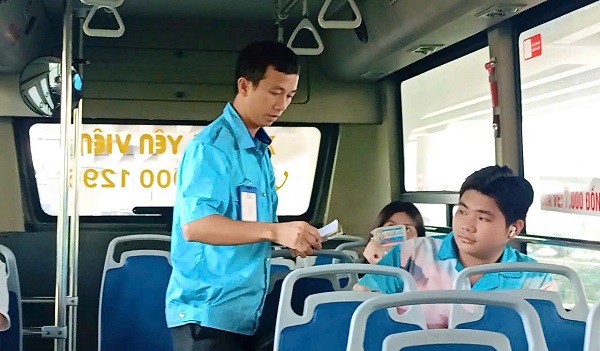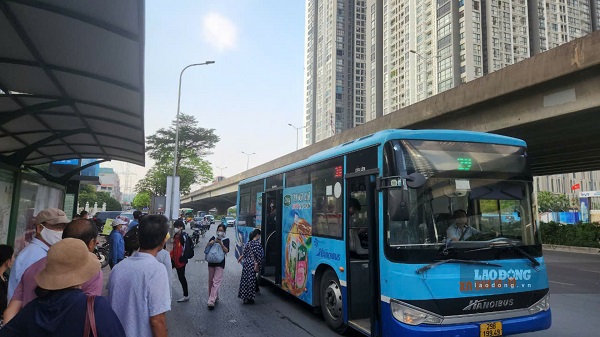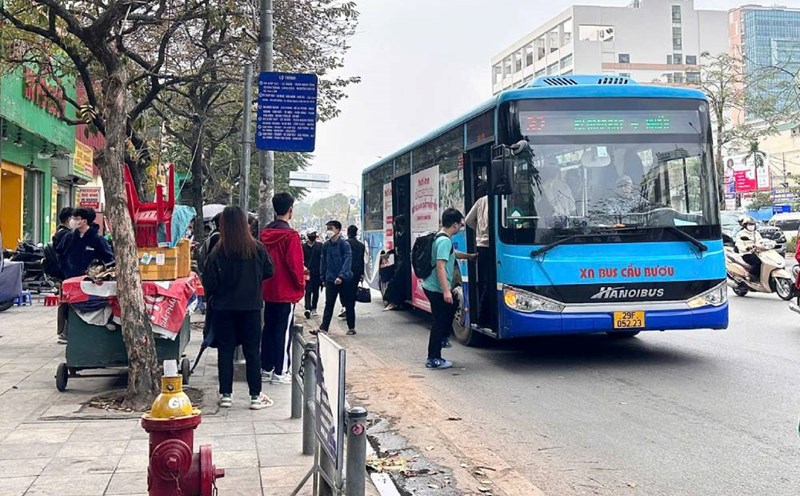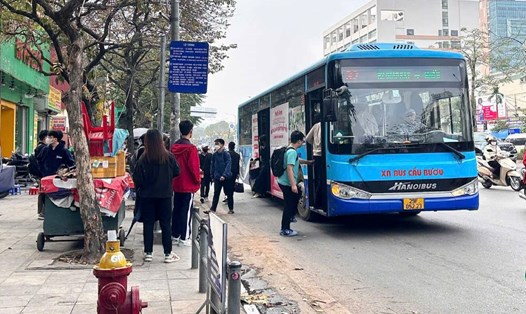10 years new bus fare increase
Deputy Director of the Hanoi Traffic Management and Operation Center - Ms. Tran Thi Phuong Thao - said that the revenue from the fare increase will create conditions for vehicle innovation, conversion to green energy vehicles according to the direction of the Prime Minister; upgrade bus infrastructure, improve service quality and expand service areas to attract maximum people to travel by bus...

The new bus fare scheme that has been put into practice will not have a big impact on passengers. For inner-city tickets, where travel demand is highest, the increase is only 1,000 - 2,000 VND/ticket, which means that people's bus usage costs will only increase by less than 100,000 VND/month.
Currently, the bus network is increasingly developing widely, along with urban railways becoming the core means of transportation. Deputy Director of Hanoi Department of Transport - Mr. Dao Viet Long - said that the policy of issuing monthly tickets under the subsidy mechanism of the city, with attractive prices, has been encouraging people to take the bus, helping to reduce personal vehicles, environmental pollution as well as traffic congestion and accidents. Currently, the number of trips of passengers using monthly tickets accounts for over 80% of the total number of bus passengers.
However, the current ticket structure and fares are not suitable for the development of the route network. At the time of the most recent adjustment (2014), the new network had 72 routes and branch routes, of which the longest route was 49.9km.
After 10 years of expanding the service area, the network has 132 routes covering 30 districts, towns and cities; the longest route is up to 61.05km. In addition, the same price for routes with a distance of 30-60km is not appropriate.
According to Mr. Dao Viet Long, the current bus fare is considered relatively low compared to the affordability of people, including low-income workers. "Rebuilding the ticket structure and bus fares is appropriate, will not have a big impact on the lives of the majority of people and buses can still compete with other types of transport," said Mr. Dao Viet Long.
What do people want when bus fares increase?
With the monthly fare plan, the increase is only a few tens of thousands of VND/month, which has almost no impact on the people. Ms. Nguyen Thanh Thuy (Van Phuc ward, Ha Dong district) said: "The increase in bus fares really doesn't concern me much because it's not much. What I care about is whether the quality of buses will be maintained and further improved after the price increase?"
Ms. Bui Linh (O Cho Dua Ward, Dong Da District) said: “According to the newly announced fare, I will have to pay an additional VND80,000 per month for tickets. That amount of money really does not affect me at all. I will continue to use the bus as usual. Compared to taxis and motorbike taxis, it is too cheap.”

According to Bui Khanh Ngoc - a student at the University of Social Sciences and Humanities, each person only increases by a few tens of thousands of VND per month, but hundreds of thousands of people will create a significant source of revenue for bus companies. "I hope this is a positive resource for bus routes to improve quality and serve passengers better."
Regarding this issue, speaking with Lao Dong Newspaper, Mr. Ngo Xuan Phu - Deputy General Director of Hanoi Transport Corporation (Transerco) - said that controlling and improving service quality is Transerco's task. Subsidizing public passenger transport is essentially a direct subsidy for passengers. If people pay more, the budget will reduce subsidies.
"According to market rules, in the initial stage of increasing ticket prices, passenger volume will decrease and it will take a certain amount of time to gradually recover," said Mr. Phu.
- Hanoi currently has a total of 153 bus routes in operation; of which 128 are subsidized, 9 are non-subsidized, 13 are adjacent, and 3 are City Tour routes. Buses are meeting nearly 20% of the travel needs of the capital's people.
- 5 bus fare frames for trips under 15km are 8,000 VND/passenger/trip; from 15 - 25km: 10,000 VND/passenger/trip; from 25 - 30km: 12,000 VND/passenger/trip; 30 - 40km: 15,000 VND/passenger/trip; 40km or more: 20,000 VND/passenger/trip.
- Priority monthly tickets for students, industrial park workers are 70,000 VND/route; 140,000 VND/multi-route. Non-priority tickets purchased in groups are 100,000 VND/route; 200,000 VND/multi-route. Non-priority tickets purchased in individuals are 140,000 VND/route; 280,000 VND/multi-route.











